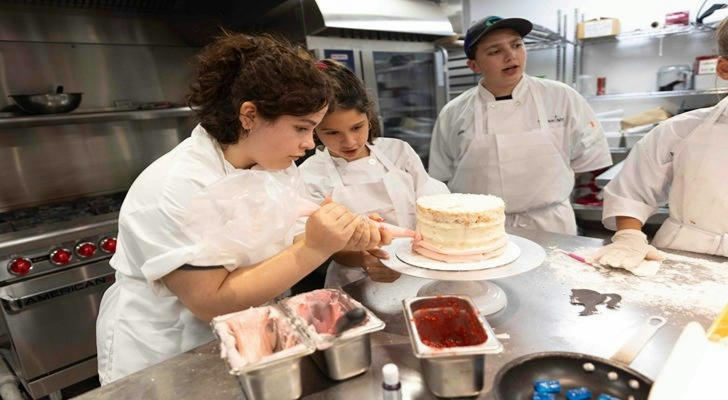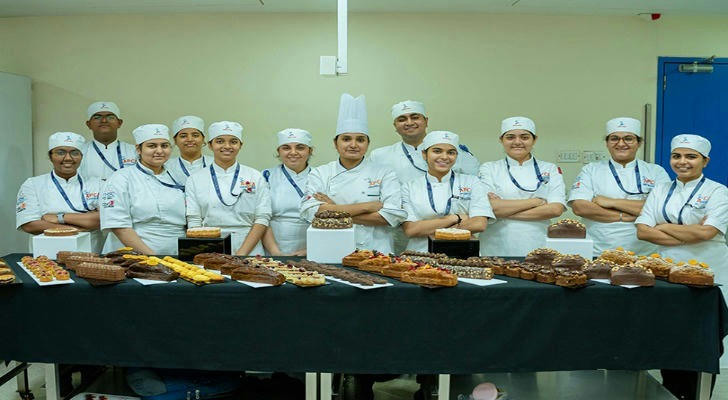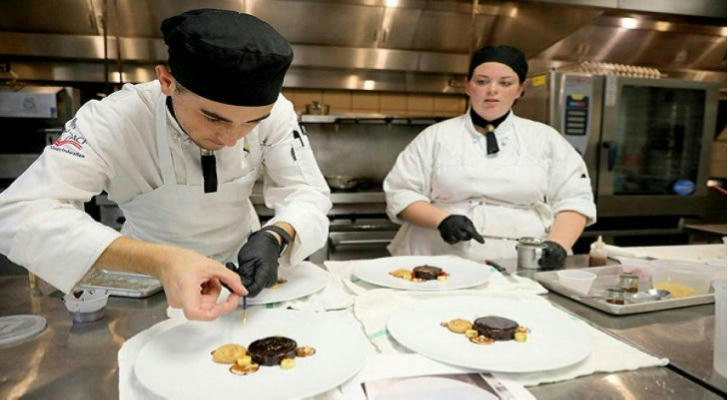Baking Training Courses in the United States: Turning a Hobby into a Sweet Career
Baking is not just a cooking skill; it is a form of creative and artistic expression. In the United States, the baking industry is booming. From the exquisite desserts in high-end restaurants to the fragrant bread in street bakeries, there is a growing demand for professional bakers. If you have a passion for baking and want to turn it into a career, baking training courses in the United States are the perfect starting point for this sweet journey.

Types of Baking Training Courses in the United States
Vocational School Courses
Baking courses offered by vocational schools are usually the most comprehensive and systematic. These courses cover a wide range of baking skills, from basic techniques to advanced decorative arts. Students can practice in professional kitchens and learn how to make various breads, cakes, cookies, and pastries. Vocational school courses typically combine theoretical learning with hands-on practice. Upon completion of the course, students can obtain a certification, which lays a solid foundation for entering the baking industry.
Community College Courses
Community college baking courses are suitable for those who want to quickly acquire skills and enter the industry. These courses are usually shorter and focus on specific baking skills, such as bread making, cake decorating, or chocolate making. Community college courses offer greater flexibility, allowing students to choose full-time or part-time study according to their own time and needs.
Online Courses
Online baking courses provide convenience for those who cannot attend in-person classes. Through online platforms, students can learn baking skills anytime and anywhere. They can watch video tutorials, participate in online discussions, and complete practical assignments. Many online courses also offer live interactive sessions, where students can ask questions to instructors in real-time and receive personalized guidance.
Short Workshops and Master Classes
Short workshops and master classes are usually taught by industry experts or well-known bakers and focus on specific baking topics, such as French pastry making, sugar paste decoration techniques, or holiday cake design. These courses are short but content-rich and are suitable for students with some baking experience who want to improve their skills or learn specific techniques.
Content of Baking Training Courses in the United States
Basic Baking Skills
- Dough Making: Learn how to make various types of dough, including bread dough, cookie dough, and pie crust.
- Cake Making: Master the basic recipes and baking techniques for cakes, such as sponge cakes, chiffon cakes, and pound cakes.
- Icing Preparation: Learn how to make different types of icing, such as buttercream, powdered sugar icing, and fondant.
Professional Skills
- Bread Making: Learn how to make various types of bread, such as baguettes, whole wheat bread, yeast bread, and gluten-free bread.
- Pastry Making: Master the techniques for making advanced pastries, such as macarons, Madeleines, and tiramisu.
- Chocolate Making: Learn the techniques for tempering chocolate, shaping it, and decorating with it to make chocolate candies and chocolate cakes.
Decorative Arts
- Cake Decorating: Learn how to use buttercream, fondant, and icing to decorate cakes, and master floral decorations, character shaping, and geometric pattern designs.
- Icing Painting: Learn how to use icing to paint beautiful patterns on cookies or cakes.
- Chocolate Decoration: Learn how to make exquisite decorations with chocolate, such as chocolate shavings, chocolate flowers, and chocolate shapes.

Business Knowledge
- Bakery Management: Learn how to open and manage your own bakery, including cost control, pricing strategies, and marketing.
- Food Safety and Hygiene: Master the standards for food handling and storage to ensure food safety.
Career Prospects
The baking industry in the United States has a growing demand for professional talent. Bakers can work in a variety of settings, including bakeries, restaurants, hotels, and pastry studios. According to the United States Bureau of Labor Statistics, the employment outlook for bakers is stable. With the increasing demand for high-quality baked goods, the income in this industry is also gradually increasing.
Career Development Paths
- Junior Baker: Responsible for basic baking tasks, such as making dough and simple decorations.
- Senior Baker: Capable of independently completing complex baking projects, such as custom cakes and artistic decorations.
- Bakery Manager: In charge of managing the daily operations of a bakery, including employee management, cost control, and marketing.
- Bakery Entrepreneur: Open your own bakery or pastry studio to realize your entrepreneurial dreams.

How to Choose the Right Baking Training Course?
When choosing a baking training course, consider the following factors:
Course Content
Ensure that the course content is comprehensive and covers basic skills, professional techniques, and business knowledge.
Instructor Qualifications
Choose courses taught by experienced and certified bakers.
Learning Method
Select a learning method—offline, online, or blended—that suits your schedule and learning style.
Internship Opportunities
Prioritize courses that offer internship opportunities to gain practical work experience.
Certifications and Credentials
Choose courses that offer industry certifications to enhance your employability.
Conclusion
Baking training courses in the United States provide a comprehensive and systematic starting point for baking enthusiasts and career seekers. By learning baking skills, mastering scientific principles, and gaining practical experience, students can embark on a creative and fulfilling career. Whether you want to work in a bakery or dream of having your own baking business, baking training courses can provide the tools and knowledge to achieve your goals. If you have a passion for baking, now is the perfect time to start learning and turn baking into the sweet career of your dreams.
